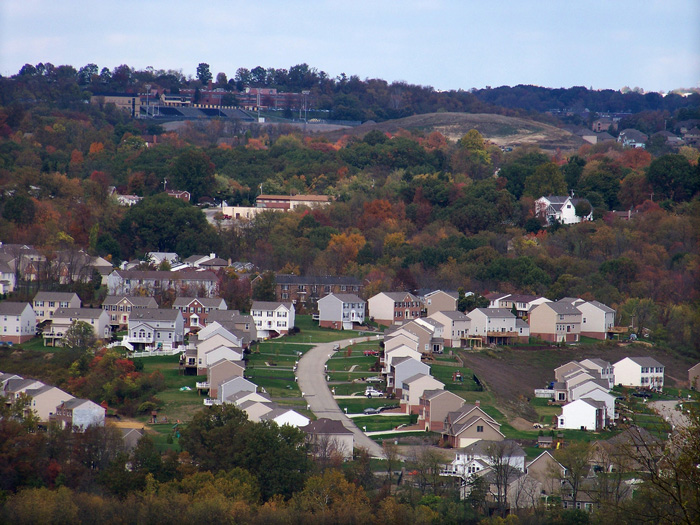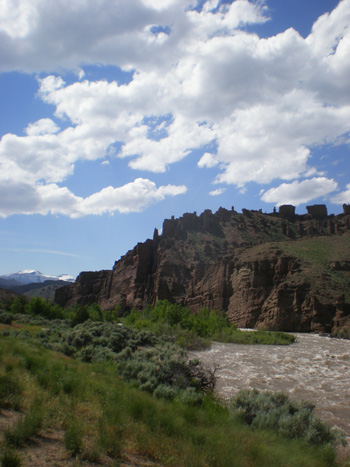Portrait of a Gardener: A Gradual Connection
 Along a sunbathed patch of ground between the central air conditioning unit and the picket fence that separates my landlord’s small piece of property from his neighbor’s similarly modest plot, my ten jalapeño plants have sat for the past few months huddled together, steadily working their way up and out of their plastic buckets. The location isn’t ideal, but I’ve found that this little nook is much more accessible and considerably less vulnerable than the roof outside of my second floor apartment, where my bell peppers endured the better part of last summer until one of the last few gusts of a tapering hurricane blew most of them to an untimely end. Besides, the apartment is situated on an endlessly trafficked road, and, in an exhibition of unfeelingly single-minded business acumen, somebody long before my time plastered the entire backyard with asphalt to make way for a constantly bustling parking lot.
Along a sunbathed patch of ground between the central air conditioning unit and the picket fence that separates my landlord’s small piece of property from his neighbor’s similarly modest plot, my ten jalapeño plants have sat for the past few months huddled together, steadily working their way up and out of their plastic buckets. The location isn’t ideal, but I’ve found that this little nook is much more accessible and considerably less vulnerable than the roof outside of my second floor apartment, where my bell peppers endured the better part of last summer until one of the last few gusts of a tapering hurricane blew most of them to an untimely end. Besides, the apartment is situated on an endlessly trafficked road, and, in an exhibition of unfeelingly single-minded business acumen, somebody long before my time plastered the entire backyard with asphalt to make way for a constantly bustling parking lot.
Admittedly, I haven’t exerted much effort toward the customization of my garden (if I can refer to it as a garden) because experience has taught me to forgo expectations: a prolonged transitional period has seen my personal interaction with this place last frustratingly longer than I had ever intended, and so, for the time being, gardening is a hobby, but it is hardly an indulgence. Within its present setting, my garden poses an unfortunate but all too familiar juxtaposition – both spatially and ideologically – because, more than anything, my garden is a result of the necessity that this place engenders, where space is measured in terms of square feet and condominiums are popping up even amidst the housing bubble.
Not until this past summer, while traversing one particularly expansive leg of what had become my own interpretation of the classic American cross-country road trip, did I realize that – to an extent that I never before had reason to fully consider – my conceptions and understandings regarding the rest of the world have been incontrovertibly and inextricably informed by the colloquial mindsets and habits of my surroundings. That I managed to dredge up a personally significant (though likely belated) nugget of self-awareness isn’t so noteworthy in itself: we’ve all chuckled in good-natured self-mockery at the regional idiosyncrasies that seem to come as second nature. But it’s another thing altogether to be caught off guard by way of a head-on confrontation with a reality – somebody else’s reality – that is so far removed from one’s everyday existence.

I am a product of the northeast, having lived all of my twenty-six years in New Jersey, clumped with millions of other people in a tiny corner of this tiny state, and, before the sweep of the veritable no man’s land across much of central Wyoming presented me with a sort of culture shock, no firsthand experience had ever seen me far from the peculiar complacency of suburbia. A stretch of unbuilt land is a striking panorama to someone who is intimately familiar with the smear of metropolitan spillover, the sequence of towns tidily bordering each other like a jigsaw, with what little urban open space preserved without rhyme or reason. In fact, that we still bill ourselves as “The Garden State†has become increasingly irksome, as if New Jersey didn’t ripple with all of the qualifications (read: frustrations) that have rendered it the most densely populated state in the country: congestion, industrial clutter, pollution, etc. In fact, “Dirty Jersey†and “The Armpit of America†have always seemed like well-earned and arguably less misleading nicknames for a state that is hardly recognized for any of its inherent qualities.
There are too many economic and sociological implications that have left this a culture without an at-large appreciation for land beyond its commercial potential: land is simply real estate, an unavoidable fact of life here at the convergence of four major cities. And, as I have observed, that attitude carries with it certain assumptions regarding the day-to-day means by which we “surviveâ€, rendering for most of us a minimal interaction with the land we utilize. I know that this isn’t experientially unique, as if the East Coast was an anomaly to some greater self-sustaining community, and I’m not doing justice to the nascent local food movement, but that connection between our natural resources and our implementation of them seems to go especially unacknowledged here.
My garden has required little hands-on maintenance: frequent watering, occasional weeding. But even in its simplicity, it has provided a curious and welcome deviation from that round-the-clock sense of immediacy. The process – as manageable as it has been – has proved refreshingly inflexible to the bottom line that more or less dictates every other facet of life. Obviously, my ongoing care is motivated by the prospect of an eventual, small crop of full-grown peppers, but, on a very small scale, these plants with all of their momentary demands have enabled a perspective that my everyday compulsions and obligations do not afford. I hope that I am not undermining the convictions or qualifications of someone who has fully experienced the day in, day out intricacies of horticulture when I admit that I feel like I have acquired a very slight understanding of the insight that writer Wendell Berry offers on the subject of farming in his 2004 essay “Imagination in Placeâ€: “…one is abruptly and forcibly removed from easy access to the abstractions of regionalism, politics, economics, and the academic life. To farm is to be placed absolutely.â€
Recently, my wife and I have had to adjust our repertoire in order to take full advantage of the inordinately abundant harvest that my little garden has yielded, and with every pepper that I dice up for a batch of chili con carne, I catch myself basking in an exaggerated air of accomplishment. But the real payoff – that which will stay with me until I plant something else next spring – is that broader appreciation, a closer proximity between me and whatever land I happen to occupy.
Photo credits: Top, Jon Dawson; Lower, Jared Bier

